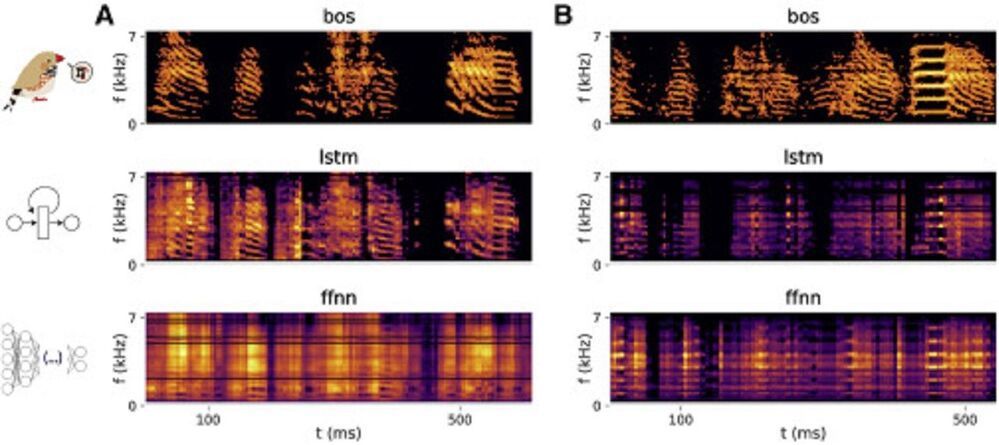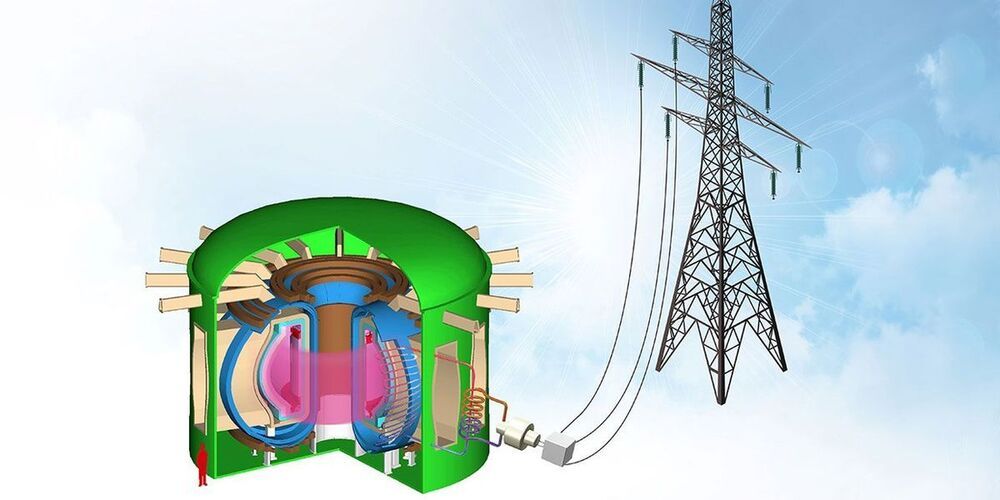How do stellar outbursts affect the planets that orbit them?
Scientists surveyed thousands of stars to understand the impact they have on their orbiting planets’ habitability.
How do stellar outbursts affect the planets that orbit them?
Scientists surveyed thousands of stars to understand the impact they have on their orbiting planets’ habitability.


Here’s the secret to the self-sustaining tokamak concept.
Could the future of nuclear fusion be a much smaller, self-sustaining tokamak reactor? Researchers at the General Atomics DIII-D National Fusion Facility, the largest nuclear fusion research facility in the U.S., think so. The secret is the pressurized plasma.
The scientists from DIII-D have designed a full “compact nuclear fusion plant” concept and detailed the plans in a new paper in Nuclear Fusion. In simulations, their 8-meter-wide pressurized plasma fusion concept is powerful enough to generate 200 megawatts (MW) of net electricity after the energy cost of the fusion itself.

A new on-chip device that is very good at mediating interactions between light and atoms in a vapour has been developed by researchers in Germany and the UK. Flavie Davidson-Marquis at Humboldt University of Berlin and colleagues call their device a “quantum-optically integrated light cage” and say that it could be used for wide range of applications in quantum information technology.
Hybrid quantum photonics is a rapidly growing area of research that integrates different optical systems within miniaturized devices. One area of interest is the creation of devices for the control, storage and retrieval of the quantum states of light using individual atoms. This is usually done by integrating on-chip photonic devices with miniaturized cells containing warm vapours of alkali atoms. However, this approach faces challenges due to inefficient vapour filling times, high losses of quantum information near cell surfaces and limited overlaps between the wavelengths of light used in optical circuits and the wavelengths of atomic transitions.

Once researchers have done the hard work of translating a set of mathematical concepts into a proof assistant, the program generates a library of computer code that can be built on by other researchers and used to define higher-level mathematical objects. In this way, proof assistants can help to verify mathematical proofs that would otherwise be time-consuming and difficult, perhaps even practically impossible, for a human to check.
Proof assistants have long had their fans, but this is the first time that they have played a major role at the cutting edge of a field, says Kevin Buzzard, a mathematician at Imperial College London who was part of a collaboration that checked Scholze and Clausen’s result. “The big remaining question was: can they handle complex mathematics?” Says Buzzard. “We showed that they can.”
And it all happened much faster than anyone had imagined. Scholze laid out his challenge to proof-assistant experts in December 2020, and it was taken up by a group of volunteers led by Johan Commelin, a mathematician at the University of Freiburg in Germany. On 5 June — less than six months later — Scholze posted on Buzzard’s blog that the main part of the experiment had succeeded. “I find it absolutely insane that interactive proof assistants are now at the level that, within a very reasonable time span, they can formally verify difficult original research,” Scholze wrote.

New observations of young stellar object Elias 2–27 confirm gravitational instabilities and planet-forming disk mass as key to formation of giant planets.
A team of scientists using the Atacama Large Millimeter/submillimeter Array (ALMA) to study the young star Elias 2–27 have confirmed that gravitational instabilities play a key role in planet formation, and have for the first time directly measured the mass of protoplanetary disks using gas velocity data, potentially unlocking one of the mysteries of planet formation. The results of the research are published today (June 17, 2021) in two papers in The Astrophysical Journal.
Protoplanetary disks — planet-forming disks made of gas and dust that surround newly formed young stars — are known to scientists as the birthplace of planets. The exact process of planet formation, however, has remained a mystery. The new research, led by Teresa Paneque-Carreño — a recent graduate of the Universidad de Chile and PhD student at the University of Leiden and the European Southern Observatory, and the primary author on the first of the two papers — focuses on unlocking the mystery of planet formation.
There are Sirt6 activators on the market, but since we are not seeing any major news about results I would question their value.
SPONSOR: Longevity. Technology — https://www.longevity.technology/?utm_source=SSS&utm_medium=…aign=Sirt6
Sirtuins are highly conserved proteins that are involved in a variety of important cellular processes such as DNA repair, metabolism and circadian rhythms. The mammalian sirtuins (SIRT1-7) are a family of proteins that carry out NAD+-dependent protein deacylation and mono-ADP-ribosylation. These modifications on proteins can influence their stability, localisation within a cell and activity.
In the late 90s interest in sirtuins bloomed as it was found yeast lived 30% longer when they had an additional copy of a yeast sirtuin, Sir2. Similar studies have now been performed in mice, but whilst overexpression of SIRT1 in mice does not result in lifespan extension, overexpression of SIRT6 does. This has led to SIRT6 being referred to as the longevity sirtuin. However, there seems to be some sex-and mouse strain-dependent differences. So, in the remainder of the video, we will discuss what you need to know about SIRT6 including it’s proposed cellular activities, it’s association with longevity and how SIRT6 activation using allosteric activators could have future therapeutic potential.
TIMESTAMPS:

Researchers from University of Copenhagen have developed a new technique that keeps quantum bits of light stable at room temperature instead of only working at-270 degrees. Their discovery saves power and money and is a breakthrough in quantum research.
As almost all our private information is digitalized, it is increasingly important that we find ways to protect our data and ourselves from being hacked.
Quantum Cryptography is the researchers’ answer to this problem, and more specifically a certain kind of qubit — consisting of single photons: particles of light.

Goldman Sachs ramps up bitcoin trading in new partnership with Mike Novogratz’s Galaxy Digital.
The bank has begun trading bitcoin futures with Galaxy Digital, the crypto merchant bank founded by Mike Novogratz, CNBC has learned.
The trades represent the first time that Goldman has used a digital assets firm as a counterparty since the investment bank set up its cryptocurrency desk last month, according to Galaxy co-president Damien Vanderwilt.
The moves by Goldman, the preeminent global investment bank, may reverberate on Wall Street and beyond as banks increasingly face pressure from clients who want exposure to bitcoin. By being the first major U.S. bank to begin trading cryptocurrency, Goldman is essentially giving other banks cover to begin doing so as well, said Vanderwilt, a former Goldman partner who joined Galaxy last year.

For those not in the loop, the Kardashev Scale is a system of measurement invented by Soviet astronomer Nikolai Kardashev in 1964. It quantifies how advanced a civilization is according to how much energy they’re able to harness.
Type 1 civilizations have harnessed 100% of the accessible energy of their own planet. Type 2 has harnessed 100% of the accessible energy in their solar system. Type 3 has harnessed 100% of the accessible energy in their galaxy. There is no official Type 4 but it is conceivable that eventually a civilization could harness 100% of the accessible energy in the universe, and Type 5, which has harnessed all the accessible energy in the multiverse.
That’s some heavy stuff, well beyond the scope of this article. The public’s focus on near term manned spaceflight efforts these days belies a problem with our priorities. Grand, ambitious projects like settling the Moon and Mars grab our attention, while there’s still much left to be done on Earth.